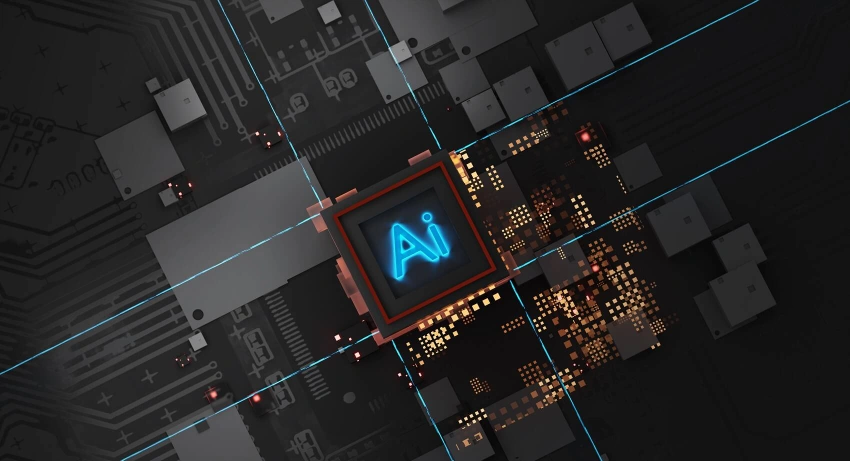
John Edwards, Technology Journalist & Author June 14, 2024
Collected at: https://www.informationweek.com/machine-learning-ai/quantum-computing-and-ai-a-perfect-match-#close-modal
It’s a marriage that could only happen in cyberspace — quantum computing and artificial intelligence.
Quantum AI is a burgeoning computer science sector, dedicated to exploring the potential synergy that exists between quantum computing and AI, says Gushu Li, a professor at the University of Pennsylvania School of Engineering and Applied Science, in an email interview. “It seeks to apply principles from quantum mechanics to enhance AI algorithms.” A growing number of researchers now believe that AI models developed with quantum computing will soon outpace classical computing AI development.
Quantum AI creates an intersection between quantum computing and artificial intelligence, observes Román Orús, chief scientific officer at quantum computing software development firm Multiverse Computing, via email. He notes that quantum computing has the potential to take AI to entirely new levels of performance. “For instance, it’s possible to develop quantum neural networks that teach a quantum computer to detect anomalies, do image recognition, and other tasks.” Orús adds that it’s also possible to improve traditional AI methods by using quantum-inspired approaches to dramatically reduce the development and training costs of large language models (LLMs).
Potential Applications
Combining the quantum physics properties of superposition and entanglement, which can perform limitless processes simultaneously with machine learning and AI, and suddenly it’s possible to do more than ever imagined, says Tom Patterson, emerging technology security lead at business advisory firm Accenture, via email. “Unfortunately, that includes being used by adversaries to crack our encryption and develop new and insidious ways to separate us from our information, valuables, and anything else we hold dear.”
Still, Patterson is generally optimistic. Like ChatGPT, he expects quantum AI to arrive gradually, and then all at once. “While full use of an AI-relevant quantum computer remains years away, the benefits of thinking about AI with quantum information science capabilities are exciting and important today,” he states. “The opportunities are here and now, and the future is brighter than ever with quantum AI.”
For his part, Li believes that quantum AI’s biggest initial impact will be in four specific areas:
A Silent Revolution
Quantum AI is already here, but it’s a silent revolution, Orús says. “The first applications of quantum AI are finding commercial value, such as those related to LLMs, as well as in image recognition and prediction systems,” he states. More quantum AI applications will become available as quantum computers grow more powerful. “It’s expected that in two-to-three years there will be a broad range of industrial applications of quantum AI.”
Yet the road ahead may be rocky, Li warns. “It’s well known that quantum hardware suffers from noise that can destroy computation,” he says. “Quantum error correction promises a potential solution, but that technology isn’t yet available.”
Meanwhile, while quantum AI algorithms are being developed, classical computing competitors are achieving new AI successes. “While progress is being made, it’s prudent to acknowledge that the integration of quantum computing with AI is a complex endeavor that will unfold gradually,” Li says.
Patterson notes that many of the most promising quantum AI breakthroughs aren’t arriving from university and corporate research teams, but from various regional developer and support communities that closely mirror natural ecosystems. “Regions that have decided that quantum and AI are too big and too important to leave to one group or another have organized around providing everything progress demands — from investment to science to academics to entrepreneurs, growth engines, and tier-one buyers,” he says. “These regional ecosystems are where the magic happens with quantum AI.”
Mind-blowing
GenAI and quantum computing are mind-blowing advances in computing technology, says Guy Harrison, enterprise architect at cybersecurity technology company OneSpan, in a recent email interview. “AI is a sophisticated software layer that emulates the very capabilities of human intelligence, while quantum computing is assembling the very building blocks of the universe to create a computing substrate,” he explains. “We’re pushing computing both into the realm of the mind and the realm of the sub-atomic.”
The transition to quantum AI won’t be optional, Orús warns, since current AI is fundamentally flawed due to excessive energy costs. New models and methods will be needed to lower energy demands and to make AI feasible in the long term. “Early adopters of quantum AI will get a competitive advantage and will survive, as opposed to those that do not adopt or adopt it too late.”

Leave a Reply